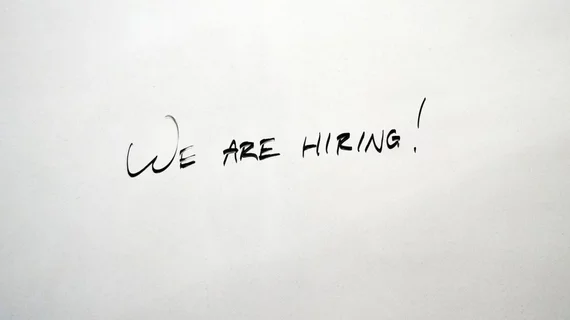CEO turnover dropped to lowest level since 2017 in second half of 2022
The Great Resignation hit the healthcare industry by storm during the COVID-19 pandemic, but turnover among CEOs slowed to its lowest level in five years toward the end of 2022, according to a new report from Challenger, Gray and Christmas.
Healthcare and hospital CEOs were taking part in the sky-high turnover rate across industries during the first half of 2022, with the number of healthcare CEOs leaving their roles reaching a new record from January to April, a May report found. For the year, companies in the healthcare and healthcare products industry announced 111 CEO exits, while hospitals announced 103 CEO changes, Challenger, Gray and Christmas reported in their latest findings.
“The pandemic changed how many hospitals and healthcare companies operated,” Andrew Challenger, leadership expert and senior vice president of Challenger, Gray & Christmas, said in a statement. “The industry was plagued by staffing issues and burnout at all level.”
Across all industries, companies announced 1,235 CEO exits in 2022, which is 8% fewer than the 1,337 CEO exits in 2021. It’s also the second-lowest annual total since 2017, when 1,160 CEOs left their roles. Toward the end of the year, 100 CEOs announced their departures in December, up 5% from the 96 announced in November, but down 6% from the 106 who exited in December 2020.
“Companies appear to be holding steady with their leadership after years of leadership changes and unprecedented uncertainty,” Challenger noted in the report.
Overall, healthcare had the third most CEO departures in 2022, behind only the government/non-profit sector and the tech sector. The majority of CEO (308) who left their roles cited retirement as the top reason, followed by 272 who stepped into other roles within the company, such as a board position or another C-suite role.
Fewer CEOs left their roles due to misconduct allegations in 2022 compared to the prior year, when seven left their post due to sexual harassment, professional misconduct, or racism allegations. Just two left their roles for the same reasons in 2022, the report found. Another 288 CEOs did not give a reason for leaving, compared to 155 who did the same in 2021. That jump could signal major changes experienced last year. Within the healthcare space for example, a loss of government funding from the COVID-19 response, coupled with significantly higher costs from high inflation and a tight labor market rapidly changed the operating environment for healthcare players in 2022.
“The number of CEOs who left without giving reasons could indicate how quickly things changed in 2022,” Challenger explained. “The first half of the year saw the highest number of CEOs leaving on record with 774. Then, leadership changes began to slow. This could be because pandemic concerns eased, as did some staffing concerns. Though a downturn was imminent, companies seemed to have their leaders set as we ended 2022.”
The number of new CEOs who were women in 2022 was 26.2%, just below the 26.8% reported in 2021. That’s compared to 23% in 2020 and 22% in 2019. However, more women CEOs left their roles in 2022, as nearly 20% of CEOs who left their posts were women in both 2022 and 2021. That’s up from 16% in 2019, and the highest rate of women CEO exits since Challenger began tracking gender in 2010.
“On one hand, a higher rate of women leaving the CEO role means there are more women in that pipeline,” according to Challenger. “However, the events of the last three years have taken a toll on women in leadership positions, as the pandemic uncovered inequities in pay, opportunities, and support of these leaders. This may have pushed many of them out of their leadership roles.”

